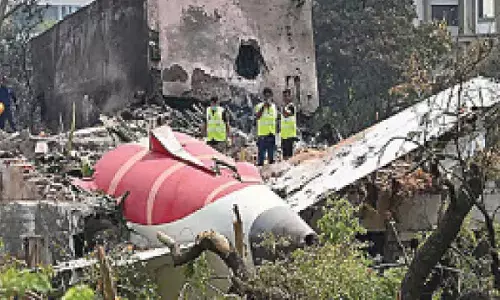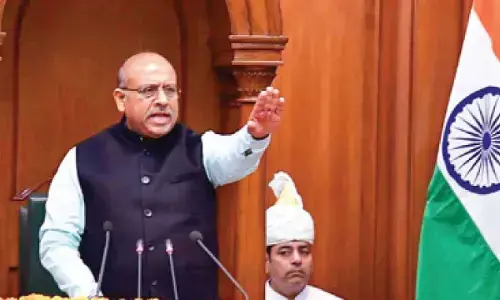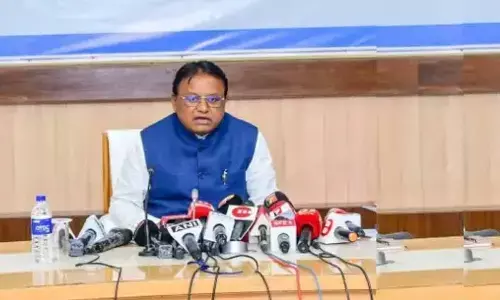Denial of information under RTI

Most of the people do not know how to frame information request. And most of Public Information Officers (PIOs) find it difficult to provide correct responses. Capacity building on either side is important. The RTI Act grants right to collect existing information, but not the right to seek clarifications, answers to questions or solutions to the problems or grievances.
 It is the legitimate expectation of the people that designated senior officers would act objectively and secure the rightful information for the applicants.
It is the legitimate expectation of the people that designated senior officers would act objectively and secure the rightful information for the applicants.
If the office of public authority has shifted to a comfortable premises, that should have provided enough scope and reason for organising files but not to lose the files. The repeated answer of “files not traceable” is reflecting disorganisation, and it is not acceptable in an RTI regime.
The appellant should clearly state the requirement of information. Specification is the quality of application. Ambiguity will delay or even lead to denial. The Central Public Information Officer (CPIO) has to make a positive effort to give information.
Saying “files not traceable” or “we are finding them” or “missing” is not provided by the law. Not keeping the promise of providing information in spite of the order of First Appeal is not a legally valid attitude.
The First Appellate Authority cannot pass a vague order, without time limit. If the CPIO cannot be found personally responsible, the Public Authority might become accountable for delay or denial. Then the remedy will be the compensation
Most of the people do not know how to frame information request. And most of Public Information Officers (PIOs) find it difficult to provide correct responses. Capacity building on either side is important. The RTI Act grants right to collect existing information, but not the right to seek clarifications, answers to questions or solutions to the problems or grievances.
An example on hand is the information request framed by one D Suresh Kumar filed an RTI application to the Wildlife Division, Ministry of Environment and Forests, Government of India, for information pertaining to Papikonda Wildlife Sanctuary and its de-notification for Indira Sagar Polavaram Project.
This is how he framed his request. He wanted certified copies of a proposal sent by the Government of Andhra Pradesh, recommendation of the National Board for Wildlife (NBWL) for diversion of certain part of Papikonda Wildlife Sanctuary for Indira Sagar Polavaram Project, file notings related to the order of NBWL recommending the same, note sheets relating to the order of NBWL recommendation, notes of all meetings of NBWL with regard to diversion of Papikonda Wildlife Sanctuary,
all meeting minutes of standing committee and other committees of NBWL which have discussed Indira Sagar Polavaram Project, site inspection report of standing committee of NBWL, Central Empowered Committees (CECs) report on Indira Sagar Polavaram Project, the order of NBWL recommending diversion,
the order of Supreme Court of India approving de-reservation/de-notification of Papikonda Wildlife Sanctuary, Geographical map of Papikonda Wildlife Sanctuary, along with GPS coordinates before it was proposed, notification issued by the AP government notifying Papikonda Wildlife Sanctuary, and geographical map of the proposed Papikonda National Park.
Through the online RTI portal, the CPIO said: “The requested information is not traceable/mixed with other files in the record room during the shifting of the Ministry from CGO complex to New Building. As soon as the file is traced out, information would be provided to you.”
The First Appellate Authority (FAA) felt that though there was response in time, but no information was given though there was no denial of information too. The FAA is expected to pass an order based on the facts and conclusions with specificity and time frame, without which the whole exercise of first appeal would become futile, and the purpose of law will be defeated.
Appellants’ rights are recognised but the FAA did nothing, and that is a violation of his right to information. It is the legitimate expectation of the people that designated senior officers would act objectively and secure the rightful information for the applicants. The CPIO said that because of the shifting of office, records of wildlife clearance granted to Polavaram project were not traceable initially.
However, files were traced and assured to send the information to the applicant within a week.The CPIO said the files were traced later and assured to send the information to the applicant within a week. If the office of public authority has shifted to a comfortable premises, that should have provided enough scope and reason for organising files but not to lose the files.
The repeated answer of “files not traceable” is reflecting disorganization, and it is not acceptable in an RTI regime. There is no point in reiterating the same without implementing the direction of the First Appellate Authority. The Complainant was kept waiting in the belief that the wildlife files would be traced as promised.
But it was an endless wait for him even after he approached the CIC in second appeal. The core function of the department is to conserve forests, secure wildlife and also preserve the files regarding those functions. Losing them and not expediting the process of tracing and providing that information is not proper on the part of public authority.
It has infringed upon the right to information of the community and the planned legal action for preservation of wildlife and tribal rights kept pending with endless wait.It is a peculiar situation. Even after getting a favourable order in first appeal, the appellant is compelled to come in second appeal because of its non-implementation besides not being informed about the possibility of its implementation.
Because of this attitude of CPIO, the appellant was compelled to come to the Commission, which is forced to take up the job of getting the FAA order implemented. In fact, the Commission is not the ‘execution court’ of orders of FAA. The public authority knows that it has to give information, but they are deferring it by an excuse.
When they have traced the files, what stops them from furnishing the same? Why the promise of providing information within one week is not provided? If the files were not traceable initially, apparently, it is because of the disorganization of public authority. It is not known whether PIO is responsible for non-supply of information even after the files are traced, or whether public authority is strategically denying the same.
The CPIO is part of the entire machinery, who alone cannot be held responsible for missing of files and delay in supply of information. But public authority should be surely responsible for both. The Commission found it a deserving situation to compensate the appellant who filed RTI application in public interest,
and decided to award compensation of Rs 15,000 for causing loss and harassment by unreasonable and illegal claim of non-traceability of records, which is being used as a shield to stall the Right to Information of the appellants, and not giving copies even after the files were traced.
The Commission has directed the Public Authority and the Government of Andhra Pradesh to furnish the appellant the certified copies of complete documents relating to Wildlife Clearance granted Indira Sagar Polavaram Project including correspondence and file notings within 15 days from the date of receipt of this order.
Experience of this second appeal shows several aspects of working of RTI at three levels. The appellant should clearly state the requirement of information. Specification is the quality of application. Ambiguity will delay or even lead to denial. The CPIO has to make a positive effort to give information. Saying “files not traceable” or “we are finding them” or “missing” are not provided by law.
Not keeping the promise of providing information in spite of the order of First Appeal is not a legally valid attitude. The First Appellate Authority (FAA) cannot pass a vague order, without time limit. If the CPIO cannot be found personally responsible, the Public Authority might become accountable for delay or denial. Then the remedy will be the compensation.
By:Madabhushi Sridhar










